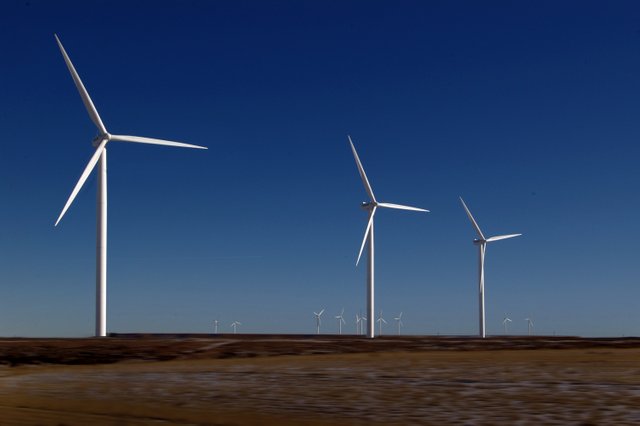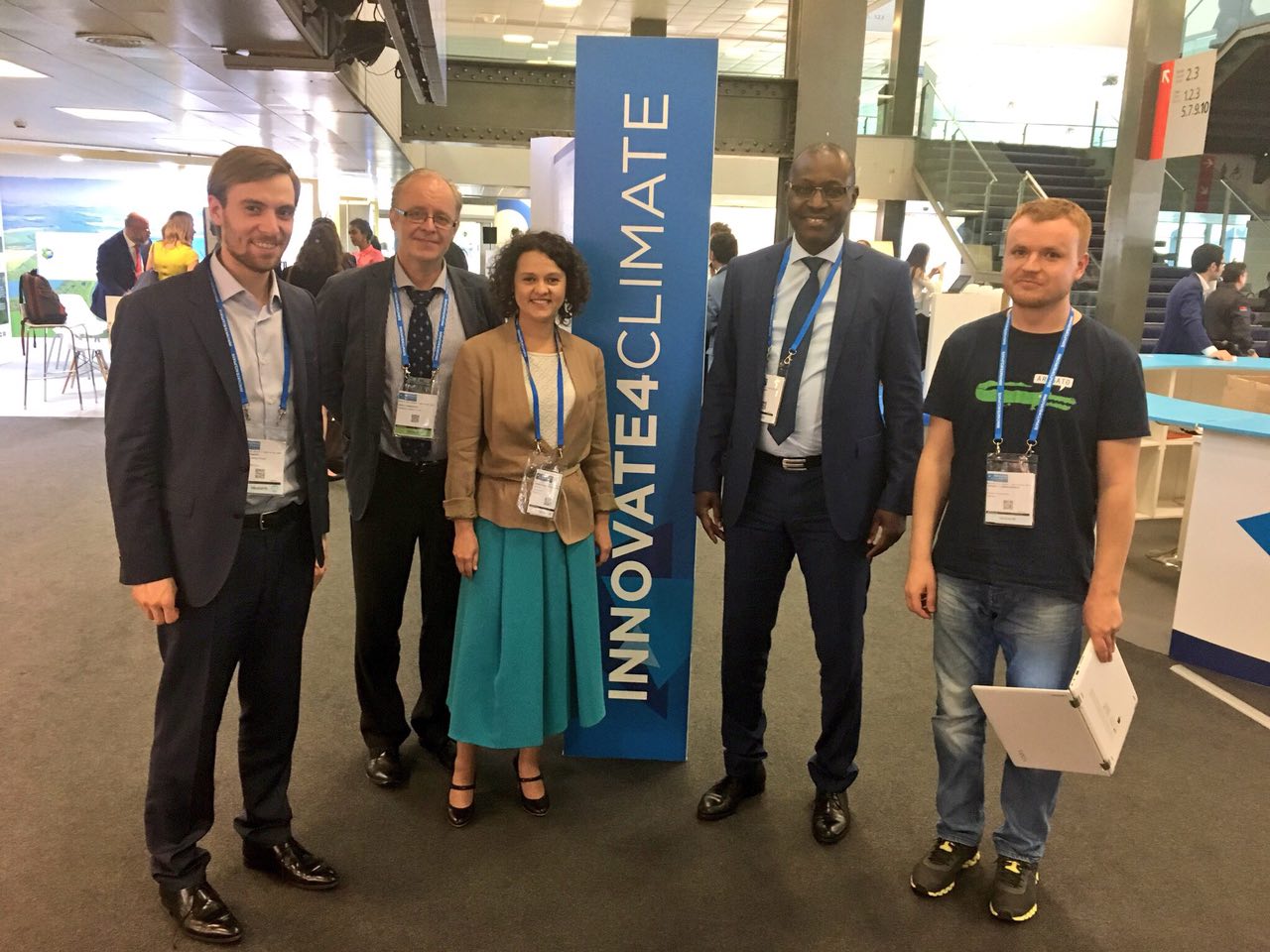Green assets for a greener world - how it works with DAO IPCI
Blockchain may accelerate investment into low-carbon projects and mitigate climate change
140 mln people will have to migrate by 2050 due to anthropogenic climate change: such grim figures are mentioned in a recent study by the World Bank. In 2017 the World Ocean has set a new temperature record, and the last three years meteorologists have called the warmest in the history of observations. So if we have to live and work in more secure and stable world, drastic measures need to be taken to reduce the carbon footprint of global industry and transport.

Picture by Victor Santos
The participants of the latest global hackathon #HackforClimate, which was held on the margins of the COP23 Climate Conference, searched for an effective technological solution of environmental problems. And on January 28, the UN Secretariat on Climate Change announced the creation of the Climate Chain Coalition, to explore the potential of technology in this area.
The potential of blockchain is being explored in many areas: finance, medicine, retail, real estate business and voting. Some experts believe that in the future it will significantly reduce the need for a number of banking and notary services. But how can it counteract global warming? In addition to storing data on temperature changes and atmospheric pollution, blockchain provides an opportunity for the further advancement of "green" financing.
An important part of the "green economy" will belong to “carbon credits” helping raise funds for clean energy and environmentally friendly technologies in various industries. Buying carbon assets, companies can compensate for the carbon footprint of their goods and services, and individuals can neutralize their personal carbon footprint. The infrastructure for green quotas trade emerged in 1997 another Kyoto protocol (for example, Russia sold 240 million tons of CO2 under this agreement).

Picture by Johan Bos
In the coming decades, the emission quota market promises to become the largest commodity market in the future with a volume of about $10 trillion. Today, CO2 emissions trade exists in 54 countries which account for 40% of the world's GDP. The emission trading system for aviation is expected to be launched in 2020.
Over the past two years, the annual doubled volume of issuance of so-called green bonds; in 2017 it reached $92 billion. The main issuers are development banks, private companies and municipalities. Such growth became possible, among other things, thanks to the rapid development of green finances in China.
To address these challenges, Russian environmental experts and block-developers have created a block-ecosystem DAO IPCI (Integrated Program for Climate Initiatives). The project was supported by and the World Bank, the United Nations Framework Convention on Climate Change and the United Nations Green Climate Fund (GFC).
The Ethereum-based platform DAO IPCI provides tools and an ecosystem for investment in low-carbon projects, allowing a wide variety of stakeholders, including business and people, to record quantitative impacts and quantitative commitments, invest in projects to reduce negative impacts, compensate for their carbon footprint, acquire certified project results reduce climate impacts and trade, join existing programs or launch new ones.
At the moment, the forces of DAO developers are aimed at creating a protocol for an automated system for recording and stimulating energy savings via IoT and smart sensors in order to increase energy efficiency and reduce emissions of industrial pollutants.
On 14 March 2017, on the platform of DAO IPCI, the first international transaction was held to transfer carbon units between the environmental fund "Russian Carbon" and the French trader Aera Group, an investor in African environmental projects. Carbon units (Verified Carbon Units), checked by the auditors for compliance with international standards, are the result of climate-centered environmental projects.
A carbon unit is a certified quantitative environmental result of “green projects” equivalent to one tonne of CO2. First, the investor and the owner of the emission source agree on the legal rights and obligations of the project to reduce greenhouse gas emissions, after the project is implemented, an independent auditor evaluates the results from the standpoint of compliance with the project documentation. According to the results of the examination, the investor receives carbon units equivalent to the reduced tons of carbon dioxide, which can then be traded on the DAO IPCI platform. Today, 40 different carbon assets are circulating on the market, and a single platform will simplify the interaction between their issuers, investors and buyers.
The presentation of DAO IPCI on COP23 in Bonn was one of the most popular performances in the Russian pavilion. Members of the team - Alexei Shadrin, Sergey Lonshakov and Anton Galenovich explained how their blockchain platform would boost international cooperation within the framework of the Paris Agreement. Following the results of COP23, DAO IPCI had new use cases in Chile, Brazil, France, the US and Canada and Kazakhstan.
In Chile, the organization will launch the world's first decentralized climate program for the development of solar energy in remote villages. Emissions reduction will be verified through the data from IoT sensors and confirmed via public blockchain. The IoT protocol is tested in the field, and its implementation will significantly reduce the verification costs and increase the credibility of green assets and green digital tokens.
In Kazakhstan, the DAO IPCI is negotiating the implementation of blockchain in the National System of Emissions Monitoring and the carbon market, which was launched in 2018 as part of a joint program with the World Bank. If the deal succeeds, Kazakhstan will be the first country to implement a blockchain for national climate policy at the national level and will significantly improve its ecological transparency, which should increase the trust of foreign partners and contribute to the inflow of investments in renewable energy.

You received a 10.0% upvote since you are not yet a member of geopolis and wrote in the category of "ecology".
To read more about us and what we do, click here.
https://steemit.com/geopolis/@geopolis/geopolis-the-community-for-global-sciences-update-4
Congratulations @dao-ipci! You have completed some achievement on Steemit and have been rewarded with new badge(s) :
Click on any badge to view your own Board of Honor on SteemitBoard.
For more information about SteemitBoard, click here
If you no longer want to receive notifications, reply to this comment with the word
STOPDo not miss the last announcement from @steemitboard!
Congratulations @dao-ipci! You have completed some achievement on Steemit and have been rewarded with new badge(s) :
Click on any badge to view your own Board of Honor on SteemitBoard.
For more information about SteemitBoard, click here
If you no longer want to receive notifications, reply to this comment with the word
STOPDo not miss the last announcement from @steemitboard!